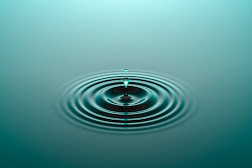I embraced sobriety from Day One, I think for a single reason. At my age - almost 72 - I don't have the luxury of youth to fuck around with my health and relationships. Sobriety felt more like a gift to myself than self-discipline or denial. Long story short? I was ready.
What I was unprepared for, though, were the measurable improvements to my physical and mental health.
Heart
Heart disease runs rampant in my family so I've paid attention to my personal metrics for several years.
My resting or basal heart rate (rhr) has been high, at around 85 beats per minute. The Mayo Clinic says that a normal rhr can range from 60 to 100 beats per minute, but that "a lower heart rate at rest implies more efficient heart function and better cardiovascular fitness". A Women's Health Initiative study of more than 129K post-menopausal women showed that those with rhr greater than 76 bpm were 26% more likely to have a heart attack or die from one than those with lower. I had tried a number of approaches to lower my RHR (meditation, cardio and HIIT workouts), but to no avail.
Within a week after stopping drinking my resting hear rate was in the low 70s. Whaaat?
My blood pressure had been OK, not high enough to merit medication but not optimal either. It tended to land in 125-130 systolic and 75-80 diastolic. I didn't worry since I didn't think I had any control over it, beyond medication. I just wished it were lower.
Since stopping drinking it now fluctuates between 112-118 systolic and 65-75 diastolic.
My experience floored me so I looked further. A recent JAMA article cites a study showing that any level of alcohol consumption increases the risk of cardiovascular disease (including hypertension, coronary artery disease, stroke, myocardial infarction, atrial fibrillation and heart failure) and that those risks increase exponentially as consumption rises.
Is this common knowledge or was my head just stuck in the sand? Seems to me this is something people would want to know. It's important to me because heart disease runs in my family; I'm happy to do whatever it takes to lower my exposure to that risk.
Sleep
For at least 30 years I've been a poor sleeper. Falling asleep was a snap, particularly with my drinking habits. I'd conk out early, around 9 pm, only to awaken 4 or 5 later. I would check the time to decide whether to tough it out or take an OTC sleeping aid like Sominex. Before 2 am? Take the pill. After 2 am? Get up and do something productive or lie there and try, usually unsuccessfully, to fall asleep. Neither option was healthy and I never felt fully rested.
Here's the funny thing: I didn't think I had an alcohol problem; I thought I had a sleep problem. That after dinner nightcap to help me sleep was actually doing just the opposite.
After a couple of alcohol-free weeks I found myself staying up until 10:30 or 11:00. What do I do with all this extra time? Read! I'm a voracious reader again and I know it's time to go to bed when I can't keep my eyes open. I now sleep a solid 7+ hours and wake up refreshed and clear-headed. That's a pretty damn good feeling. It also means I'm getting restorative sleep - not the passing-out version - which our bodies need. Science tells us that restorative sleep is critical for brain health, illness recovery, inflammation reduction, renewal on the cellular level and all sorts of other body functions. I'm here for this!
Anxiety
Here's comes the crazy part: Anxiety has been part of who I am for as long as I can remember, a low frequency hum that could intensify at the drop of a hat, given a change in circumstance or running-wild imagination. Most friends would be surprised to read this as (I think) I'm more known for being easy-going and conciliatory, a peace-maker. But it's true, that anxiety floated just below the surface waiting for a jarring memory or anticipated danger to amp it up. I always felt that catastrophe was just around the corner. The fact that this never actually happened made no difference. Rational thought was irrelevant.
A few weeks after I stopped drinking that hum dissipated and my internal voice became less of a critic and more of a friend, reminding me that disaster isn't imminent. Now I remember to pause, take a breath and stay rooted in the present.
What happened?
Apparently there is a strong link between alcohol use and anxiety (that pesky science again). When we self medicate with alcohol to alleviate stress, that fight-or-flight response is temporarily dulled, leaving us feeling calm and relaxed. Mission accomplished! Unfortunately, our amazing brains are always seeking equilibrium, and the temporary relief is followed by an opposite reaction, activating neurotransmitters and increasing anxiety. Over time and regular alcohol use, this psychological seesaw creates ongoing anxiety. That's where I was.
Good riddance to self-doubt and apprehension.
Every time that wine witch appears and whispers that I could have just one glass I think about the indisputable ways my health has improved in recent months. She's still at the losing end of the argument.
What next?
This isn't all feel-good fun and games. Sobriety is more than just stopping drinking. It means facing some harsh truths. Honesty's a bitch. Hang with me.







